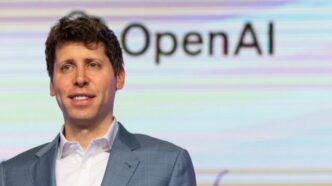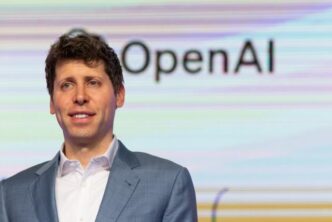OpenAI has launched a new initiative aimed at overhauling the way AI models are evaluated. Dubbed the OpenAI Pioneers Program, the effort is focused on designing domain-specific benchmarks that reflect real-world applications—moving beyond the often abstract and unreliable testing methods currently used in the field.
In a blog post, OpenAI explained that the goal is to “set the bar for what good looks like” when it comes to evaluating AI performance. With AI tools now embedded in everything from healthcare systems to legal operations, OpenAI argues the industry urgently needs more practical, high-impact testing methods.
The company noted, “As the pace of AI adoption accelerates across industries, there is a need to understand and improve its impact in the world. Creating domain-specific evals are one way to better reflect real-world use cases, helping teams assess model performance in practical, high-stakes environments.”
This initiative follows ongoing criticism of popular AI benchmarks like LM Arena, which came under scrutiny during its evaluation of Meta’s Maverick model. Many current benchmarks, according to critics, are either too academic—focusing on niche problems like PhD-level math—or too easy to manipulate. Others fail to align with the practical needs of businesses and everyday users.
Shifting Focus to Domain-Specific AI Testing
With the Pioneers Program, OpenAI plans to develop tailored evaluations for industries such as finance, healthcare, law, insurance, and accounting. The company says it will partner with several companies over the coming months to co-create these benchmarks and make them publicly available in the future.
“The first cohort will focus on startups who will help lay the foundations of the OpenAI Pioneers Program,” OpenAI stated. These early participants are expected to be startups working on high-value, applied AI use cases with strong real-world impact potential.
In addition to contributing to benchmark development, selected startups will also collaborate with OpenAI’s research team to enhance their models using reinforcement fine-tuning. This method trains AI systems to perform better on narrowly defined tasks, making them more effective in specific industry settings.
Ethical Questions Loom Over OpenAI’s Role in Benchmarking
Despite its ambitious goals, the Pioneers Program raises an important ethical question: Can benchmarks created—or funded—by OpenAI be trusted as neutral standards?
OpenAI has previously supported third-party benchmarking efforts and also designed its own internal evaluations. However, critics argue that involving paying customers in creating performance tests could be viewed as compromising objectivity. There’s concern that these partnerships may bias evaluations in favor of OpenAI’s technology.
The AI industry has long struggled with the lack of consistent, transparent standards for evaluating model quality. As more organizations turn to AI for critical tasks, OpenAI’s move to build sector-specific tests could offer a much-needed solution—assuming the community is willing to embrace it.













